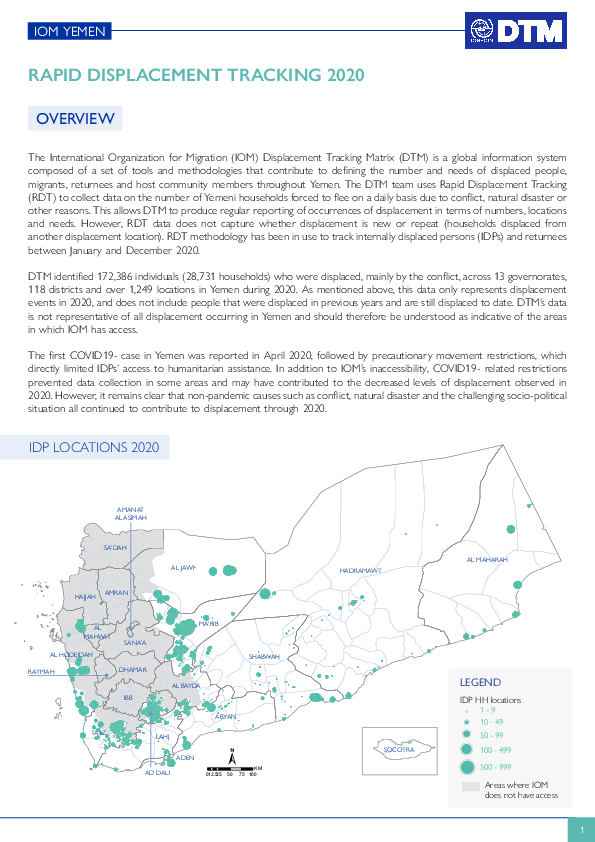-
Countries
-
Data and Analysis
-
Special Focus
-
Crisis Responses
Yemen - Rapid Displacement Tracking - Annual Report 2020

Contacter
iomyemendtm@iom.int
Langue
English
Emplacement
Yemen
Période couverte
Jan 01 2020
Dec 31 2020
Activité
- Mobility Tracking
- Event Tracking
The International Organization for Migration (IOM) Displacement Tracking Matrix (DTM) is a global information system composed of a set of tools and methodologies that contribute to defining the number and needs of displaced people, migrants, returnees and host community members throughout Yemen. The DTM team uses Rapid Displacement Tracking (RDT) to collect data on the number of Yemeni households forced to flee on a daily basis due to conflict, natural disaster or other reasons. This allows DTM to produce regular reporting of occurrences of displacement in terms of numbers, locations and needs. However, RDT data does not capture whether displacement is new or repeat (households displaced from another displacement location). RDT methodology has been in use to track internally displaced persons (IDPs) and returnees between January and December 2020.
DTM identified 172,386 individuals (28,731 households) who were displaced, mainly by the conflict, across 13 governorates, 118 districts and over 1,249 locations in Yemen during 2020. As mentioned above, this data only represents displacement events in 2020, and does not include people that were displaced in previous years and are still displaced to date. DTM’s data is not representative of all displacement occurring in Yemen and should therefore be understood as indicative of the areas in which IOM has access.
The first COVID-19 case in Yemen was reported in April 2020, followed by precautionary movement restrictions, which directly limited IDPs’ access to humanitarian assistance. In addition to IOM’s inaccessibility, COVID-19 related restrictions prevented data collection in some areas and may have contributed to the decreased levels of displacement observed in 2020. However, it remains clear that non-pandemic causes such as conflict, natural disaster and the challenging socio-political situation all continued to contribute to displacement through 2020.
